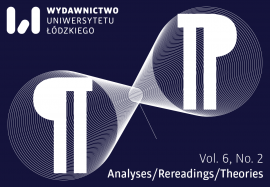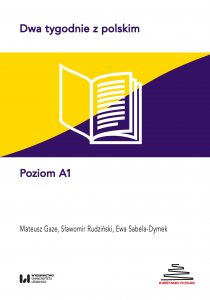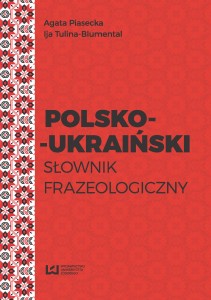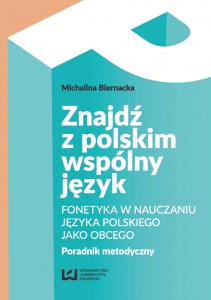Analyses/Rereadings/Theories: A Journal Devoted to Literature, Film and Theatre
Opublikowano: 15 lipca 2022

Zapraszamy do lektury nowego numeru Analyses/Rereadings/Theories (A/R/T Journal).
Recenzowane czasopismo zostało stworzone z myślą o zapewnieniu forum do analizowania i omawiania zagadnień mających bezpośrednie znaczenie dla współczesnych studiów literackich i kulturoznawczych. Czasopismo wyraża przekonanie, że krytyka akademicka powinna być łatwo dostępna na całym świecie. W związku z tym każdy z numerów jest publikowany w Internecie i dostępny do bezpłatnego pobrania.
W numerze poświęconym Michèle Roberts:
Marta Goszczyńska
“The Ecstasy of the Between-Us”: Sharing the World in Michèle Roberts’s Relational Poetics
Monika Szuba
In Through Vegetal Being, Luce Irigaray writes about the importance of “cultivating and sharing life between all” as it will result in “the blossoming of all beings.” This perspective seems to reside at the centre of Michèle Roberts’s writing. Entangled in the natural world, her characters demonstrate an awareness of the necessity of grounding. Mud, this mixture of water and soil, is a recurrent motif, and a powerful symbol of remaining close to the earth. It also exemplifies the collapse of binaries frequently occurring in Roberts’s texts, including the intertwining of human and nonhuman beings particularly present in her poetry. Offering a weave of the spiritual and the worldly, Roberts frequently foregrounds our corporeal existence, which constitutes a major theme in her work. Sensual and fleshly, her texts remain “in the tangle of brambles” (The Heretic’s Feast 6), immersed in the shivering, shifting, changing world, with all its intensities and sensations.
This essay explores the significance of the vegetal and animal in the constitution of individual identity in Michèle Roberts’s poetic work. The analysis will focus on the relation of the self with the world, established in the spirit of cultivating and sharing.
“It’s a Pagan Communion, and We Are the Priests”: Plenitude in Michèle Roberts’s Short Fiction
David Malcolm
Roberts’s short stories have not received extensive scholarly attention, yet they make up a substantial part of her oeuvre. Her output of short stories is configured in a particular and coherent way, one that overlaps with her novels, but is consistent in itself. This configuration is summed up by the term plenitude. Abundance is noted in: genre and mood—in genre shifts and in a mixture of the comic and the dark; characters and settings—the range of female figures presented in the short fiction, and of time and place settings; character morphology—the recurrence of motifs of emotional excess, of longing, desire, and passion, in the shaping of characters (gender shifting is also relevant here); and language—the recurrence of motifs of excess on the level of language, the list, metaphoricity and self-referentiality, and the interpenetration of a variety of discourses. In her short fiction, Roberts conflates the spiritual and sensual, meals and wild gardens, the dark and the light. The plenitude of her created world and its language are entries to redemptive or consolatory experiences.
Michèle Roberts’s “Flesh and Blood” as an Example of “Écriture Feminine”
Joanna Morawska
The essay offers an analysis of Flesh and Blood, a novel by Michèle Roberts, first published in 1994. It discusses the book from the vantage point of French feminist criticism, especially écriture feminine, as well as gynocritics. The theory serves as a reference point for a better understanding of the novel’s structure, language and plot. In the opening paragraphs, the essay delineates the main premises of écriture feminine, a French feminist theory represented primarily by Hélène Cixous and Luce Irigaray, and gynocritics, a concept developed by the American feminist scholar Elaine Showalter. It then moves on to portray Flesh and Blood as an example of écriture feminine, analysing the aspects of the novel that mirror the theories of the French feminist critics: characters, motifs, structure, formal ploys and language.
Resisting the Oppressive Paternal Metaphor of God in Michèle Roberts’s “Impossible Saints”
Tomasz Dobrogoszcz
The protagonist of Michèle Roberts’s Impossible Saints, Josephine, establishes a nonconformist convent for women who seek communion with God by following an unorthodox path of sensual spirituality. Impossible Saints intersperses Josephine’s story with a number of miniature narratives depicting fictional lives of saints, rewritten in a feminist manner, portraying both the female predicament in the patriarchally structured society and women’s struggle for empowerment in which they rebel against masculinist conventions. The article employs feminist thought, derived mainly from Julia Kristeva, to examine the way in which Roberts problematizes the relation of the Catholic Church to the position of women as well its concern with the human body. The bodily dimension of the divine, as proposed by Luce Irigaray, manifesting in the emancipatory communal experience of women in Josephine’s convent, greatly contrasts with the Catholic regulatory character of religiosity. The analysis also situates the patriarchal institution of the Church in the context of the Lacanian order of the symbolic and his notion of the Name-of-the-Father. It culminates in exploring the issue of the metaphor of God as seen through the traditional patriarchal frame which pictures God as masculine.
Marta Goszczyńska
One of the most grisly European fairy tales, “Bluebeard” is also a story that has proved immensely productive, spawning numerous variants, adaptations and rewritings. This essay offers a reading of Michèle Roberts’s Ignorance (2012) as one such retelling. Roberts employs “Bluebeard” to construct a story that utilises the format of a dual coming-of-age novel but is gradually revealed as a Holocaust narrative. Set in a provincial town in Vichy France, Ignorance makes repeated use of “Bluebeard” motifs to explore the complicity of individuals in Nazi crimes against their Jewish neighbours. Featuring secret rooms, forbidden chambers, locked doors and embedded narratives, the novel tells the story of Jeanne Nérin as she comes to terms with her Jewish identity and accepts her responsibilities as a Holocaust survivor. This account is complemented by several other stories, the most important of which is that of Jeanne’s childhood companion, Marie-Angèle, whose Bildung ends in emotional and ethical failure. Fascinated with the life of bourgeois comfort and respectability, Marie-Angèle embraces what Nancy Tuana describes as “wilful ignorance,” and becomes increasingly complicit in the acts of injustice, exploitation and crime she witnesses.
Komentarze
Ten post dostępny jest także w języku: angielski





